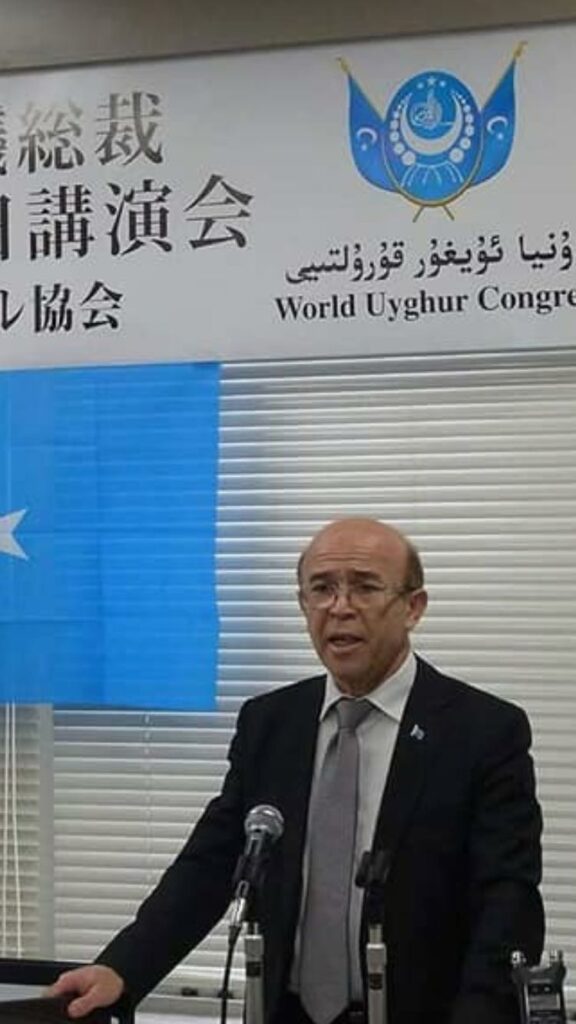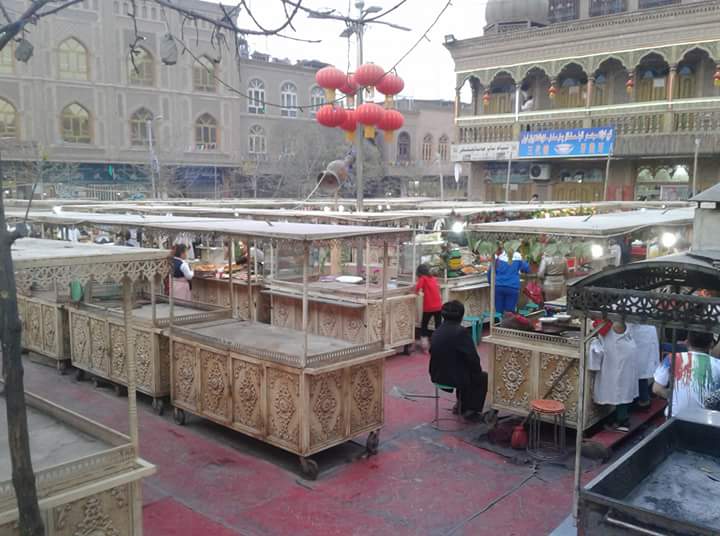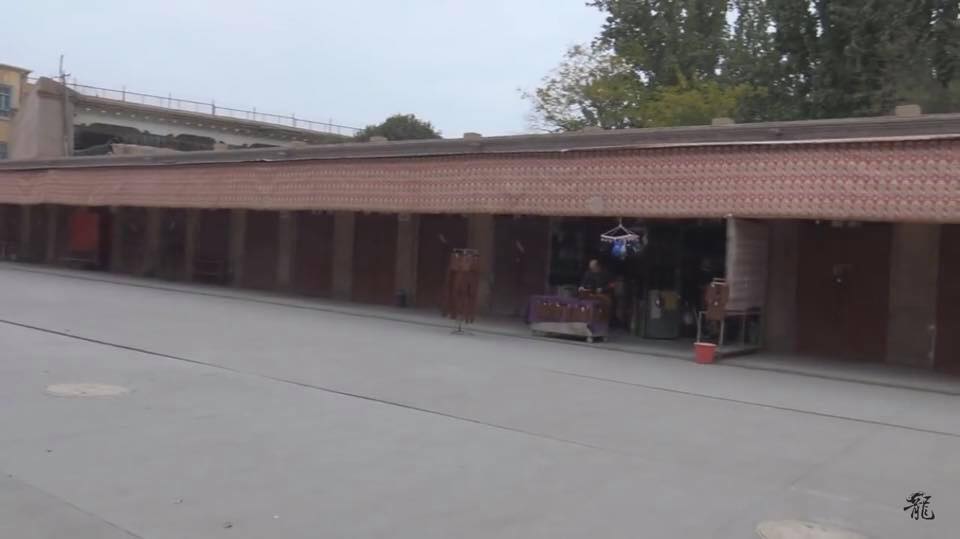UHRP’s Director Speaks in Japan About the Belt and Road Initiative’s Effect on Uyghurs

April 20, 2018
UHRP’s director Omer Kanat spoke this month in Japan at a conference sponsored by the Japan Uyghur Association on China’s Belt and Road Initiative and its effects on the Uyghurs. He presented UHRP’s report on the BRI and recent developments in China’s overseas investment and loan strategy.
Mr. Kanat argued that the fact that East Turkestan lies at the heart of the land route of China’s massive infrastructure investment project is a major reason for the current securitization push. The massive increase in the size and militarization of the police force, the propaganda mobilization campaigns, the ramping up of assimilative policies like “bilingual education” and last and perhaps most shocking the incarceration of hundreds of thousands of Uyghurs in “re-education camps” are all being done in the name of “stability” which will supposedly help economic growth, according to the official Chinese argument.
However, these policies do not create the impression of stability- they make East Turkestan appear to be a war zone. Although the human suffering caused is a more pressing issue, the securitization campaign’s effect on the economy is also an interesting question. It is difficult to believe that it has a salutary effect. There have been reports that the propaganda campaigns and re-education camps have deprived farms of the labor needed to harvest crops, leaving them to rot in the fields, and fewer people going to buy in the markets. Others report that the delivery system is randomly shut down for “security reasons,” making life for small traders difficult. Trade with neighboring nations has not quite matched the lofty rhetoric. It was recently reported that all government financed projects were being halted to check if there was enough capital to complete them without additional debt. The government has for years boasted that the GDP growth in the region is faster than other provinces, but it is fueled by unsustainable center-led infrastructure and industrial investments. Fixed asset investment had increased 20% in 2017, compared to a nationwide average of 7%.

Once-busy Kashgar night market now half empty @Uyghurcause

Shuttered shops, Kashgar Old Town @Salih_Hudayar
The success of ventures like the Khorgos trade hub with Kazakhstan is in question, with the free trade zone seeming to function more as a tax haven. What the Chinese government says will create trade networks and international cooperation has instead damaged them. There has been trade though the Khunjerab Pass for millennia, but now Pakistanis face challenges in the form of intrusive security checks and high tariffs, and it is one of the countries which Uyghurs will be punished for have any ties to or communication with. Uyghurs married to Pakistanis have been placed in the camps, and the Chinese government refuses to allow the Pakistanis communication with their wives and even children.
The Chinese government frames the BRI plan as a great opportunity to open up the world to trade and communication. The experience of the Uyghurs should raise doubts about their sincerity- the Uyghur homeland has been transformed into a security state with no regard to the economic effects, and travel, trade and communication across borders is being made difficult to impossible for most Uyghurs. This is a fundamental contradiction at the heart of the BRI plan.
